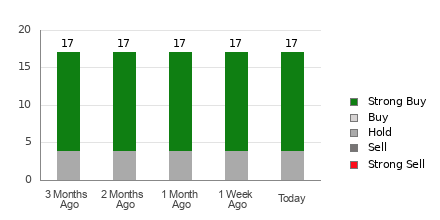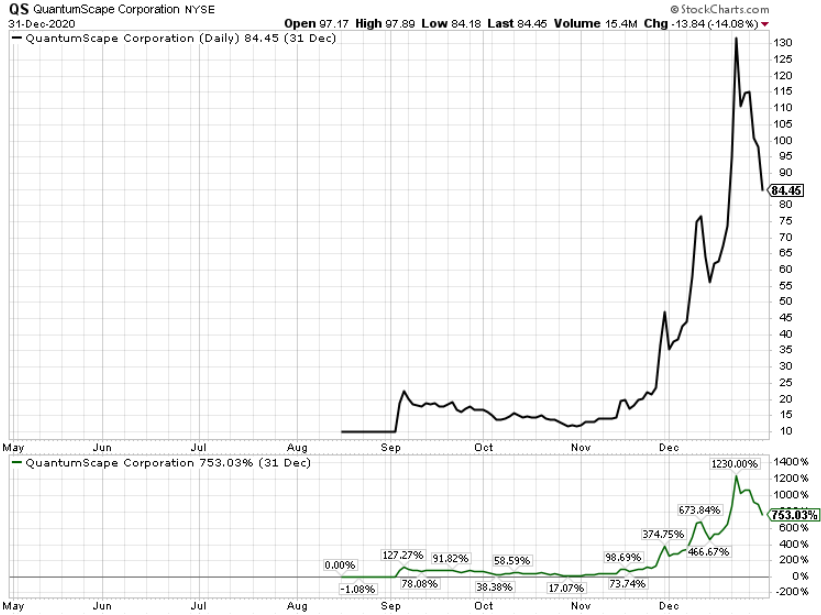Nasdaq on Brink of Correction as AI Stocks Present Buying Opportunity
Less than three months after the Nasdaq Composite (NASDAQINDEX: ^IXIC) reached an all-time high, the tech-focused index teeters on the edge of entering a correction, defined as a decline of 10% or more from its recent peak. On March 4, the index fell briefly by more than 10% from its highest point as fears over new tariffs on Canada and Mexico drove it down over 5% across two days before recovering some losses.
Investors are understandably anxious due to tariff concerns and the current dynamics of the stock market. Alongside what appears to be a rapidly escalating trade war, the stock market is trading at unusually high valuations, which heightens the risk of declines.
Despite this environment, long-term investors in artificial intelligence (AI) stocks may find the recent sell-off to be a lucrative buying opportunity. Here are two compelling reasons why.

Image source: Getty Images.
The Ongoing AI Expansion
During the recent earnings season, major tech companies, including Microsoft (NASDAQ: MSFT), Alphabet (NASDAQ: GOOG) (NASDAQ: GOOGL), and Meta Platforms (NASDAQ: META), provided updates on their AI spending. These companies have committed to increasing capital expenditures in 2025, indicating their intent to invest more in data centers and AI infrastructure. This is clear evidence that the race toward artificial general intelligence (AGI) is intensifying.
CEOs like Sundar Pichai of Alphabet and Mark Zuckerberg of Meta have expressed that the risk of under-investing in AI outweighs the risk of overspending. Historical precedent supports this approach. For instance, investments in the mobile market helped establish Apple as the most valuable company, while Microsoft lagged behind.
These tech giants view the AI opportunity as substantial enough to justify spending tens of billions of dollars to develop the necessary infrastructure. Even in the event of a recession, their strong financial positions make it unlikely they would significantly curtail investments in AI.
Valuations Becoming More Attractive
As the Nasdaq has dropped nearly 10% from its peak in December, some AI stocks have taken an even larger hit. For example, Nvidia (NASDAQ: NVDA), a leading player in the AI space, is currently down around 25% from its peak, despite delivering solid earnings. The company’s decline is attributed to broader economic concerns and tariffs.
Nvidia reported a remarkable 78% revenue growth in the fourth quarter and anticipates $43 billion in revenue for the first quarter, reflecting a 65% growth rate. The stock now has a forward price-to-earnings ratio of 26, aligning it with the S&P 500 (SNPINDEX: ^GSPC). Given the company’s growth trajectory, this valuation appears attractive.
Similarly, Taiwan Semiconductor Manufacturing (NYSE: TSM), the largest semiconductor manufacturer globally, is down 18% from its peak. This drop makes the stock enticing after a strong earnings report. TSMC currently trades with a trailing price-to-earnings ratio of 27, reflecting a good investment for an industry leader pivotal to the global economy.
TSMC has also announced plans to invest an additional $100 billion in U.S. foundries, aiming to diversify away from Taiwan and strengthen its chip manufacturing capacity. If stock prices continue to decline, companies like Nvidia and TSMC may offer even better buying opportunities as the AI revolution progresses, independent of short-term economic fluctuations.
Should You Invest $1,000 in Nvidia Now?
Before considering an investment in Nvidia, keep in mind:
The Motley Fool Stock Advisor analyst team has identified what they believe to be the 10 best stocks for current investment, and Nvidia is not included. The selected stocks could deliver substantial returns in the coming years.
If you had invested $1,000 in Nvidia at the time of their April 15, 2005 recommendation, you would now have $690,624!*
Stock Advisor offers a straightforward roadmap for financial success, including portfolio-building advice, analyst updates, and two new stock recommendations each month. The Stock Advisor service has returned over four times the return of the S&P 500 since 2002*. Don’t miss the latest top 10 list available upon joining Stock Advisor.
See the 10 stocks »
*Stock Advisor returns as of March 3, 2025
Randi Zuckerberg, a former director of market development and spokeswoman for Facebook and sister to Meta Platforms CEO Mark Zuckerberg, is on The Motley Fool’s board of directors. Suzanne Frey, an executive at Alphabet, also serves on The Motley Fool’s board. Jeremy Bowman has positions in Meta Platforms, Nvidia, and Taiwan Semiconductor Manufacturing. The Motley Fool holds positions in and recommends Alphabet, Apple, Meta Platforms, Microsoft, Nvidia, and Taiwan Semiconductor Manufacturing. The Motley Fool recommends the following options: long January 2026 $395 calls on Microsoft and short January 2026 $405 calls on Microsoft. The Motley Fool has a disclosure policy.
The views and opinions expressed herein are the views and opinions of the author and do not necessarily reflect those of Nasdaq, Inc.








